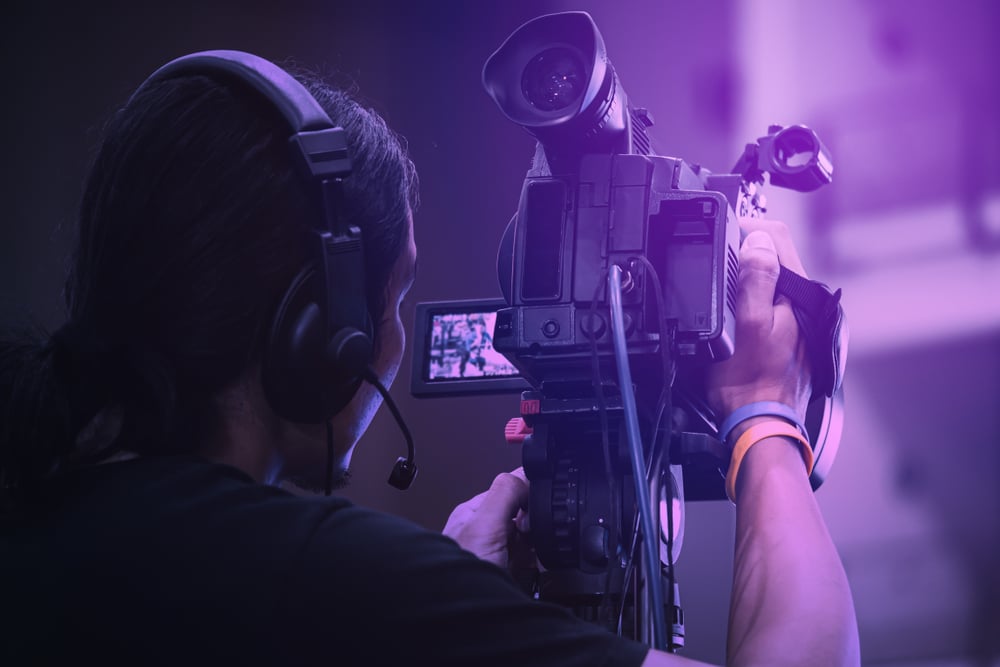The Relevance of Lawful Video Clip Depositions in Modern Legal Providers: What You Should Know
Legal video depositions have actually ended up being necessary in today's legal landscape. They supply a multidimensional sight of witness testimonies that standard records just can not match. By capturing both spoken and non-verbal interaction, these depositions improve the general understanding of a witness's reliability. The effectiveness of video depositions pivots on different factors, including conformity with lawful criteria and finest practices. Discovering these components discloses their real significance in modern-day lawful solutions
What Are Lawful Video Clip Depositions?
Legal video clip depositions work as a vital tool in the litigation process. They include tape-recording witness testaments in a video clip format, capturing both non-verbal and verbal communication. This method permits lawyers to record the temperament, expressions, and reactions of witnesses, giving a richer context for the testimony. Usually carried out in a controlled environment, these depositions are led by attorneys that ask inquiries while a court press reporter documents the discussion. The resulting video clip can be vital for test prep work, as it allows legal representatives to evaluate the trustworthiness of witnesses and improve their methods. Additionally, legal video depositions can be used in various legal contexts, ranging from civil disputes to criminal cases. The acoustic and visual components of video clip depositions boost the presentation of evidence, making it an important component in the contemporary legal landscape. On the whole, they contribute considerably to the efficiency and performance of lawful procedures.

Advantages of Video Depositions Over Conventional Techniques
Video depositions offer various benefits contrasted to standard techniques of taking witness testaments. One considerable advantage is the ability to catch both audio and aesthetic components, giving an extra complete document of the witness's statements. This twin layout improves clearness and enables lawyers to reference details subtleties throughout trial preparation. In addition, video depositions assist in remote involvement, making it simpler for witnesses who may be inaccessible for in-person appearances as a result of geographical restraints or health and wellness issues.Moreover, video depositions can expedite the total deposition procedure, minimizing the moment and prices related to traveling and logistics. They likewise improve access, as tape-recorded depositions can be conveniently shared among lawful teams and referenced at any type of time. This ease adds to much better situation management and preparation. Overall, video depositions represent a modern-day, effective method to collecting witness statements, straightening with the progressing requirements of the lawful career.
The Role of Body Language and Tone in Testimonies

In lawful video clip depositions, body language and tone play vital duties in sharing a witness's trustworthiness and dependability. Nonverbal cues can supply understandings right into a witness's emotion, affecting how their testimony is regarded. Comprehending the influence of these aspects is essential for lawyers and jurors alike when examining the integrity of a statement.
Nonverbal Communication Insights
While spoken communication is often emphasized in lawful statements, nonverbal cues such as body movement and tone play an essential duty in communicating trustworthiness and feeling. Onlookers of depositions may keep in mind that a witness's position, gestures, and face expressions can substantially affect understandings of reliability. Regular eye contact might signify self-confidence, while staying clear of stare can suggest deceit or pain. Similarly, the intonation-- its quantity, speed, and pitch-- can present sensations of genuineness or uncertainty. Attorneys must be in harmony with these nonverbal signals, as they typically offer vital context that enhances talked words. Recognizing these subtleties can improve the effectiveness of depositions and affect the outcome of legal proceedings.
Psychological Tone Impact
The emotional tone conveyed during legal testaments considerably impacts how a witness is regarded. Body language, singing inflections, and faces play important functions fit the story of a testament. A witness showing confidence via consistent eye call and a tranquil tone can instill a feeling of integrity and interaction. Conversely, signs of anxiety, such as fidgeting or an unsteady voice, may cause apprehension concerning their account. The nuances of psychological expression can influence the interpretation of facts, making it necessary for attorneys to acknowledge these hints. In video depositions, the auditory and aesthetic components integrate, highlighting the significance of psychological tone in communicating genuineness and reliability within the legal process.
Reputation and Credibility
An essential consider establishing integrity and trustworthiness throughout testimonies depends on the witness's body movement and tone of voice. Viewers usually depend on non-verbal signs-- such as eye contact, posture, and gestures-- to assess a witness's genuineness. For circumstances, a witness that preserves eye call and displays open body movement may be perceived as even more sincere YOURURL.com and reputable than one that stays clear of eye call or appears shut off. Additionally, tone of voice plays a vital function; a consistent, calm tone can strengthen the credibility of the testimony, while fluctuations in pitch or volume might elevate uncertainties. Inevitably, the mix of body language and singing tone substantially affects just how a witness's declarations are obtained and analyzed in a legal context.
Best Practices for Performing Video Depositions
Conducting video clip depositions needs cautious planning and implementation to ensure a effective and clear presentation of testimony. It is essential to pick a peaceful, well-lit location to decrease diversions and secure optimum video quality. The tools ought to be examined ahead of time, including electronic cameras, microphones, and illumination, to stay clear of technical issues throughout the deposition.Next, parties included must examine the format and procedures ahead of time, ensuring that everyone understands their roles. The deponent must be oriented on the process, consisting of just how to respond plainly and concisely.Additionally, preserving a professional attitude throughout the session is important. This consists of avoiding speaking over one an additional and validating that all questions are guided suitably. Finally, it is important to record the deposition in a style that enables very easy playback and review, preserving the stability of the testament for future usage.
Legal Considerations and Compliance Issues
Exactly how do legal considerations and compliance problems affect the efficiency of video depositions? Lawful specialists have to browse an intricate landscape of regulations, ensuring that video depositions comply with jurisdictional rules and standards. Compliance with regulations worrying personal privacy, authorization, and videotaping approaches is essential. Getting explicit consent from find this all events entailed is needed to prevent legal repercussions.Additionally, the admissibility of video clip proof in court can hinge on conformity with procedural requirements. Making certain that the devices made use of meets technical standards is additionally essential, as low quality can weaken the deposition's reliability.Moreover, attorneys need to be mindful of any specific state regulations that regulate video depositions, as these can differ substantially. Failure to deal with these considerations can not just jeopardize the stability of the deposition but likewise impact the general case method, eventually affecting the client's lawful outcomes.
Exactly How Video Clip Depositions Effect Court Perception
While video clip depositions can act as powerful devices in lawful proceedings, their impact on court perception is considerable. The aesthetic and acoustic components of video recordings offer jurors with an extra comprehensive understanding of witness temperament, trustworthiness, and psychological reactions. This multimedia strategy can enhance the jurors' ability to examine the integrity of testament compared to conventional text-based transcripts.Moreover, video depositions enable jurors to observe body movement, tone of voice, and faces, every one of which can influence their analysis of the witness's declarations. The presence of a witness on screen can humanize them, fostering empathy and link, which might guide jurors' point of views. Conversely, a witness who appears evasive or untrustworthy on video clip might cause adverse assumptions that affect a court's decision. Eventually, the dynamic nature of video depositions plays an important function fit how jurors interpret proof and reach their judgments.
The Future of Video Clip Depositions in Legal Method
As improvements in technology continue to reshape the legal landscape, the future of video clip depositions is positioned for considerable evolution. Developments such as expert system, virtual reality, and boosted video clip conferencing tools are expected to simplify the deposition procedure and enhance accessibility. Lawful specialists might use AI-driven analytics to assess witness credibility and instance stamina much more effectively.Moreover, the assimilation of online reality could permit courts to experience immersive simulations of depositions, providing much deeper context and understanding. Furthermore, the fad toward remote depositions is likely to continue, offering greater adaptability for clients and lawyers alike.As remote work becomes significantly normalized, video clip depositions will likely become standard method, reducing expenses and visit time constraints related to traditional techniques. Overall, these technological improvements promise to improve the efficiency, efficiency, and access of video depositions in legal technique, ultimately transforming just how legal specialists prepare for trial.
Often Asked Concerns
How Much Do Legal Video Depositions Commonly Cost?

Can Video Depositions Be Made Use Of in Any Kind Of Kind Of Situation?
Video depositions can be made use of in numerous sorts of cases, including civil, criminal, and family regulation. Their versatility allows lawyers to existing witness statements effectively, adjusting to the certain needs of various lawful scenarios.
What Devices Is Required for a Video Deposition?
To perform a video deposition, important tools includes a top quality camera, microphone, illumination, and a trustworthy recording device. In addition, a computer with editing and enhancing software application might be needed for post-production and formatting the final video.
Just how Lengthy Does a Common Video Clip Deposition Last?
A common video clip deposition lasts in between two to 4 hours, depending on the complexity of the instance and the number of concerns posed. Extended sessions might occur, however breaks are generally incorporated for participant comfort.

Are Video Clip Depositions Admissible in Court?
Video clip depositions are usually permissible in court, given they abide by lawful criteria and regulations of proof. Their usage improves clearness and protects witness testimony, aiding in the judicial process throughout hearings and tests. Legal video depositions have come to be essential in today's lawful landscape. In addition, legal video clip depositions can be made use of in numerous lawful contexts, varying from civil disagreements to criminal instances. Furthermore, video depositions help with remote participation, making it less complicated for witnesses that may be unavailable for in-person looks due to geographical restraints or health and wellness issues.Moreover, video depositions can quicken the total deposition process, reducing the time and prices connected with travel and logistics. Making sure that the devices used fulfills technical standards is likewise essential, as inadequate high quality can undermine the deposition's reliability.Moreover, lawyers should be mindful of any type of particular state laws that control video depositions, as these can differ significantly. In addition, the pattern towards remote depositions is likely to linger, providing better flexibility for clients and lawyers alike.As remote work ends up being increasingly normalized, video clip depositions will likely become typical practice, lowering costs and time constraints linked with traditional techniques.
Comments on “The future of litigation: Why legal video depositions are here to stay”